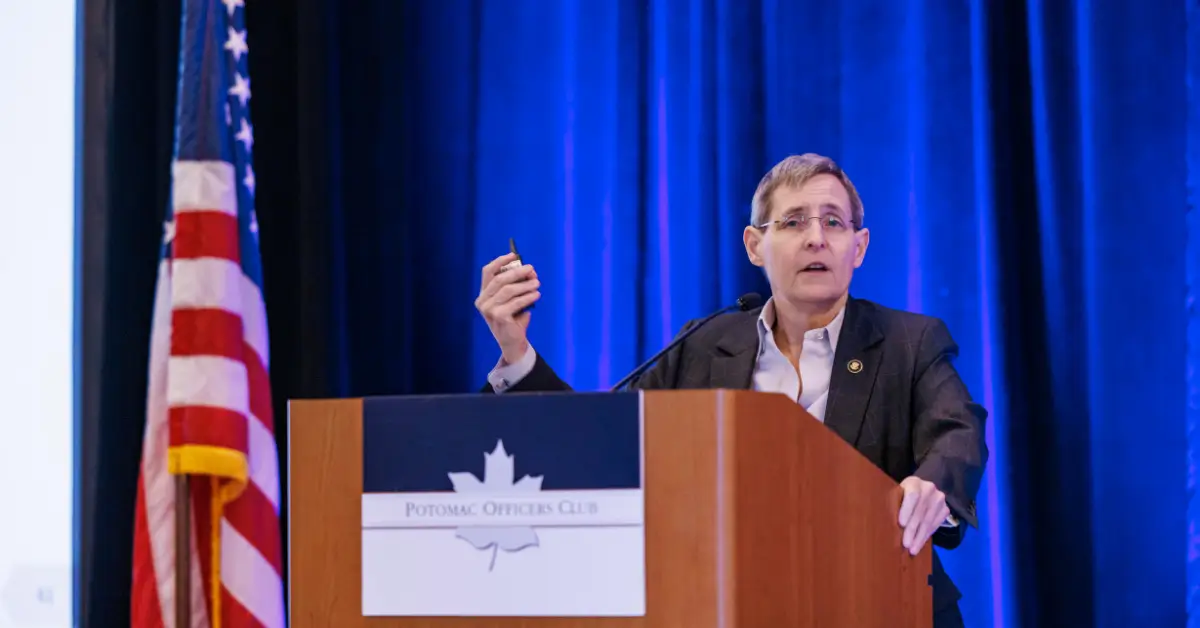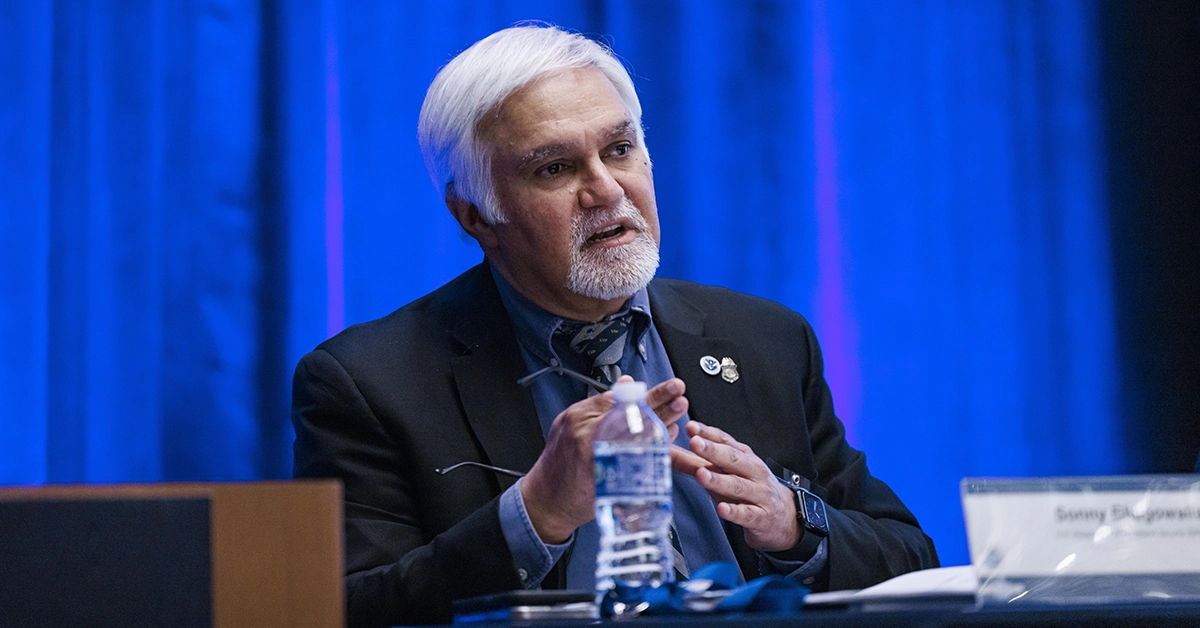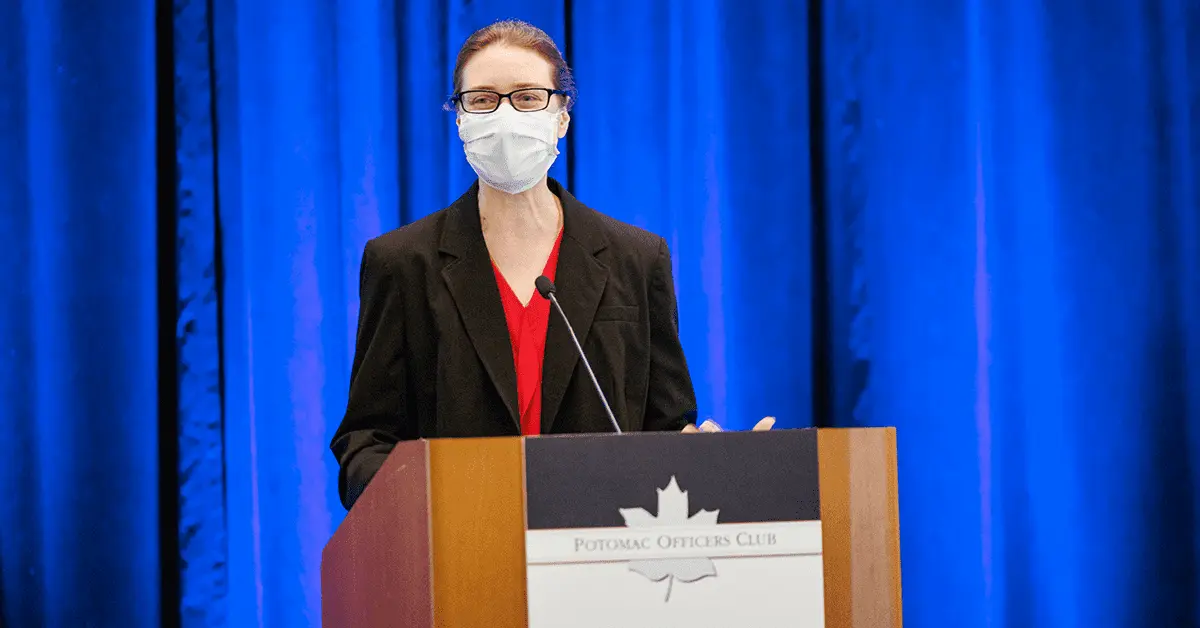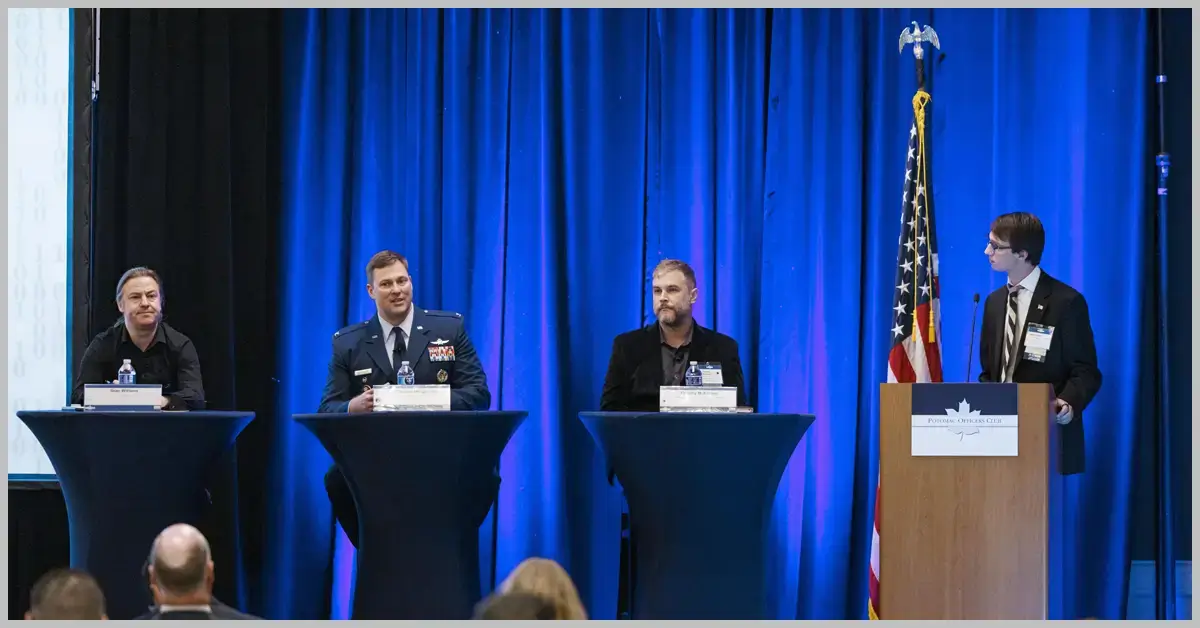Artificial intelligence has presented the U.S. Department of Energy with an opportunity to revolutionize the way it carries out its mission. Ann Dunkin, chief information officer of the DOE, has identified the analysis of climate-focused technologies like solar panels as just one potential benefit.
Though new AI technologies could be groundbreaking, there are many security concerns associated with these tools, which have rapidly transformed in recent years. According to Dunkin, the DOE is working to understand the interwoven nature of AI and cybersecurity to unleash the technology’s full power.
“It is true that AI is a security risk. It’s also true that cybersecurity is a risk to our ability to use AI,” Dunkin said during her keynote address at the Potomac Officers Club’s 5th Annual CIO Summit on Wednesday.
“The exploits you’ll see – you’re going to see them no matter what, whether you use it or not,” she said.
She listed several examples of exploits, including adversarial AI, “where the folks doing the exploit have their own AI and use it to train their attacks and build new attacks.”
Dunkin also noted botnets, for which the speed of development has increased with AI-enabled coding practices, and data poisoning as some of today’s AI-based security threats.
Data poisoning, she said, is sometimes overlooked as much of the government’s data comes from sources that are already publicly available.
“You may not care if they steal [scientific data], but you care if it’s wrong, so we need to make sure they’re not able to poison our data,” she said.
Two other concerns she highlighted are model theft and bias within AI models.
To implement the cyber defenses necessary to fight off these attacks, the DOE is leveraging its 17 national labs, which Dunkin said “do amazing work.”
Last year, she noted, the DOE funded two labs dedicated to studying the impact of cyber on the energy grid, including solar, wind, and electric vehicles and their chargers. One of these labs, the Pacific Northwest National Laboratory, “is doing work on human-machine teaming to detect and mitigate cyber attacks on distributed energy resources.”
The other, Berkeley Lab, is “collaborating with a number of other labs, academic institutions and private companies to develop secure AI/ML tools for detecting and mitigating cyber attacks” on various resource systems.
The DOE is also looking into quantum, which, when coupled with AI, can “speed up our analysis and our discovery processes in our labs and in and in universities around the country, around the world,” according to Dunkin.
Defining the direction of these efforts is the recently released DOE Cybersecurity Strategy, which Dunkin said is “really designed for protecting DOE’s assets.”
“The details are very deeply specific, but we’re looking to understand our risk, mitigate our risk, and ensure our mission is resilient, that the power grid stays up, our nuclear resources are protected, our labs are protected and keep operating, and we develop our workforce and protect critical energy infrastructure,” she explained.

The Potomac Officers Club’s next event will dive into another emerging technology: 5G. Join us at the 2024 5G Forum on May 22 to hear thought leaders from both government and industry share their insights on 5G and the future of networks in the U.S. government. To learn more and register to attend the event, click here.







